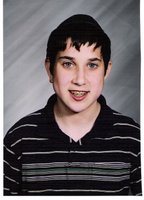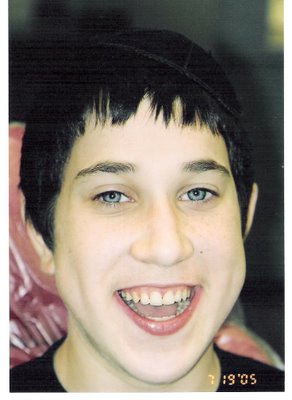"...but David's place was empty."
A group from my synagogue studies the Book of Samuel every Shabbat afternoon.
This past Shabbat, this verse caught the attention of Susie and me:
The word translated as "empty" is ויפקד - vayyippaqed - in the original Hebrew.
Jews all over the world every Rosh haShanah read a related word found in Genesis 21:1: "And the LORD remembered - פקד (paqad) - Sarah..."
Rabbi Adler noted the connection between the two word forms: the emptiness of a customary seat at the table causes us to remember the one who is absent.
His empty seat at the synagogue, his empty seat at our Shabbat table, his empty seat by his computer, and even his empty seat near his older brother watching an NBA championship series remind us of Avi's absence and of the empty spot in our lives.
This past Shabbat, this verse caught the attention of Susie and me:
And the king sat upon his seat, as at other times, even upon the seat by the wall; and Jonathan stood up, and Abner sat by Saul's side; but David's place was empty.We had the same thought:
David had a fixed place at the king's table. His vacant seat made his absence conspicuous. Avi had a fixed place next to me at our Shabbat table and next to me at the synagogue. The emptiness of those two spots matches the void left in our family.
The word translated as "empty" is ויפקד - vayyippaqed - in the original Hebrew.
Jews all over the world every Rosh haShanah read a related word found in Genesis 21:1: "And the LORD remembered - פקד (paqad) - Sarah..."
Rabbi Adler noted the connection between the two word forms: the emptiness of a customary seat at the table causes us to remember the one who is absent.
His empty seat at the synagogue, his empty seat at our Shabbat table, his empty seat by his computer, and even his empty seat near his older brother watching an NBA championship series remind us of Avi's absence and of the empty spot in our lives.






0 Comments:
Post a Comment
<< Home